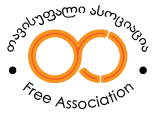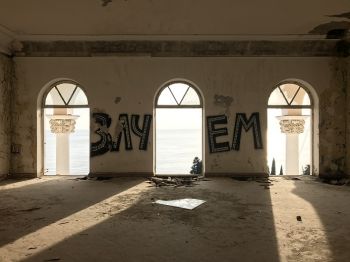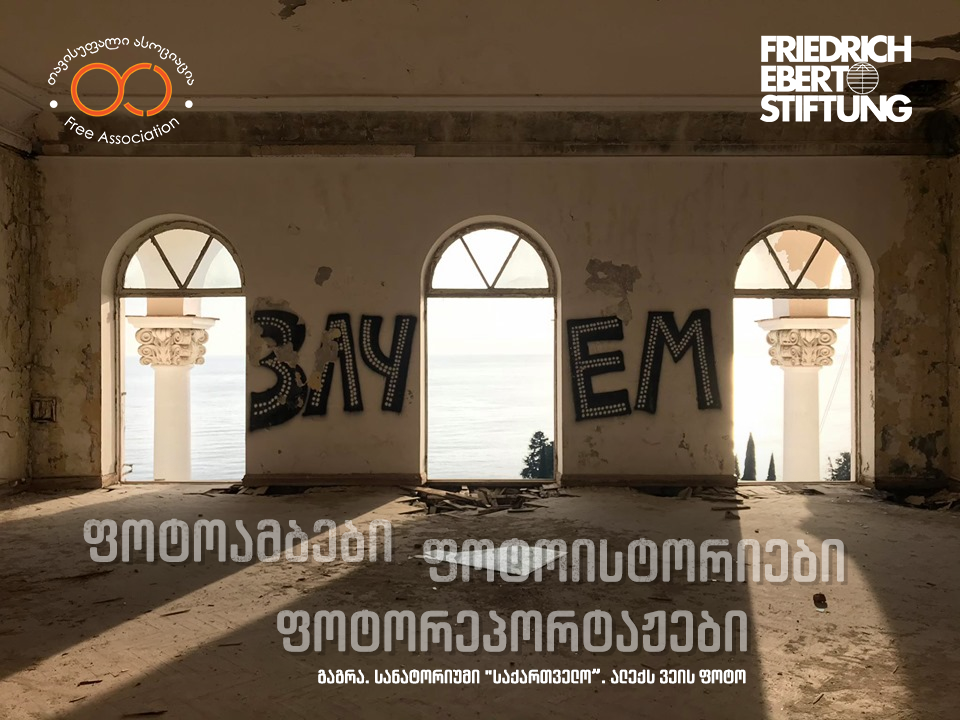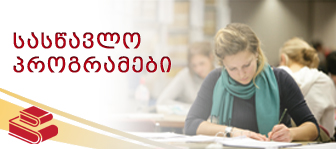ასე მგონია, არ ვიმსახურებდი იქ ყოფნას. სხვა, უფრო გამოცდილი, ამ თემაზე მომუშავე ადამიანი უნდა მოხვედრილიყო აფხაზ მწერლებთან შეხვედრაზე. მე ხომ ომიც არ გამომევლო, არ გადამხდენოდა ის უბედურება, არავინ დამღუპოდა იქ, არც ჩემს ნათესავებს გადმოევლოთ უღელტეხილი... ყველაფერმა ასე, მიღმა ჩაიარა - ტელევიზორიდან გაგონილ, მშობლებისა და ნაცნობებისგან ყურმოკრულ ამბებად, ქარს გატანებულ სიტყვებად, კედელს შეყრილ ცერცვად. ბავშვი ვიყავი...
For English scroll down ↓
როცა გავიზარდე, მერეც გაუცნობიერებელი, გაუანალიზებელი ფრაგმენტები ტივტივებდა და სულ უფრო ფერმკრთალდებოდა მეხსიერებაში: გადასხვაფერებული თბილისი; საავადმყოფოებსა და სკოლებში შეხიზნული დევნილები; სასტუმროების შემოღობილი და კუსტარულად ამოშენებული აივნები, გამათბობლების გარეთ გამოყოფილი, გაჭვარტლული მილები, გადმოფენილი სარეცხი; ქალაქის სხვადასხვა კუთხეში გამართული გარევაჭრობა; ახალი მოსწავლე კლასში, რომელსაც "ლტოლვილს" ეძახდნენ და მუდამ ტიროდა; სამოქალაქო ომი; პოლიტიკოსების გაცვეთილი ლოზუნგები; ამინდის პროგნოზის ბოლოს გამოცხადებული აფხაზეთის ტერიტორიაზე მოსალოდნელი წვიმა ან უნალექობა; თბილისის ქუჩებში მსხვილი წარწერები: "ჩვენ გვტკივა აფხაზეთი", "აფხაზეთი ჩვენი ტკივილია".
ერთხელ სამზარეულოში მე და ჩემი მეუღლე პოლიტიკაზე ვმსჯელობდით და რაღაცაზე ვთქვი მტკივნეული თემაა-მეთქი. ჩვენი შვილი სამი წლის იქნებოდა. თამაშში იყო გართული. გაუგონია ჩემი სიტყვები და ძილის წინ მკითხა: "დედა, სად გტკივა?" როცა გავარკვიე, რას გულისხმობდა, გამეღიმა. მართალი იყო, თუ გტკივა, ამაზეც უნდა გქონდეს პასუხი. მეც ხომ ზუსტად ასე ვეკითხებოდი, თუ რამე აწუხებდა, მაჩვენე, რა გტკივა, სად გტკივა-მეთქი. აბა ისე როგორ ვუშველიდი?!.. აფხაზეთი არსადაც არ მტკიოდა, არც ფიზიკურად, არც ფანტომურად. ჩემშიც ისეთივე გულგრილობა ჩაბუდდა, როგორც ალბათ იმ საზოგადოებაში, რომელმაც აფხაზეთიდან დევნილ 300 ათას თანამოქალაქეს "ლტოლვილი" დაარქვა. ლტოლვილი, ხომ უცხო ქვეყნიდან შემოსულ, იძულებით გადაადგილებულ პირს ნიშნავს და ჩვენც ასე უცხოდ მივიღეთ სიკვდილს გამოქცეული, ცხოვრებაწართმეული ქართველები. გაუცხოება იყო ყველგან, ჩვენსა და აფხაზებს შორის, ჩვენსა და დევნილებს შორის, ჩვენსა და ჩვენი ქვეყნის ხელისუფლებას შორის, რომელსაც ჯერ ვადიდებდით და მერე ვიძულებდით, ერთხმად ვირჩევდით და ასევე ვამხობდით. გავუუცხოვდით საკუთარ წარსულსა და აწმყოს, საკუთარ თავს.
დამწყებს უმართლებსო და ალბათ მეც - ახალბედა პროზაიკოსი - იღბალმა მომახვედრა იმ იშვიათ ქართულ-აფხაზურ სემინარზე, რომელიც ათასში ერთხელ საერთაშორისო ორგანიზაციების შუამდგომლობითა და დაფინანსებით იმართებოდა და ნდობის აღდგენას, სახალხო დიპლომატიას თუ სხვა კეთილშობილურ საქმეებს ემსახურებოდა. აფხაზებიც მხოლოდ ამ ფორმატით თანხმდებოდნენ მონაწილეობას, ისიც "ნეიტრალურ ტერიტორიაზე" კონფიდენციალურობისა და შესაბამისად, უსაფრთხოების სრული დაცვით. სტამბოლში შევიკრიბეთ. ჩვენი ტრენერი თავადაც მწერალი იყო და ლიტერატურული სავარჯიშოებიც ისეთი შეერჩია, მეექვსე დღისთავზე, როგორც იქნა, მეც გამტეხა. სწორედ იქ დაიწყო გამოტოვებული ტკივილის შეგრძნება - გზა გაუცხოებიდან გათავისებამდე.
დაგვაწყვილეს. აფხაზ ქალთან მოვხვდი, ასაკით ყველაზე უფროს და გაუღიმარ მონაწილესთან. ეს ქალი მასწავლებელს მაგონებდა, ლექტორს, თავისი საგანი ყველაზე და ყველაფერზე მნიშვნელოვნად რომ მიაჩნია. გაგაწვალებს, გამოცდაზე რამდენჯერმე დაგიბარებს, გაგწურავს და მანამ არ მოგეშვება, სანამ ბოლომდე არ გასწავლის. მორჩილად მივუჯექი და ტრენერის ინსტრუქციას დაველოდე. წესები იოლი მეჩვენა, მას ჩემთვის ომის ნებისმიერი ეპიზოდი უნდა მოეთხრო და მე ეს ამბავი აუდიტორიის წინაშე პირველ პირში უნდა გადმომეცა. კალამი და ფურცელი მოვიმარჯვე და ქალს გულისყურით მივაჩერდი. დრო ათი წუთი გვქონდა. ომის დაწყების სცენას მომიყვა, დეიდასთან იყო სტუმრად, მეზობელმა რომ მოიტანა ამბავი. სადილობდნენ, არ დაიჯერეს, სანამ ტელევიზორი არ ჩართეს და იგივე არ მოისმინეს.
ამ ქალის და, ბოლომდე გულწრფელი თუ ვიქნები, მთელი აფხაზური ჯგუფის მიმართ წყენა ხუთი დღის განმავლობაში მიგროვდებოდა. დასაწყისში ე.წ. ყინულის გამლღობი სავარჯიშო ერთმანეთის შესახებ 3 სტერეოტიპის დასახელებას გულისხმობდა. ჩემი გამოღვიძებაც ალბათ აქედან დაიწყო: მივხვდი, რომ არაფერი ვიცოდი იმ ხალხის შესახებ, რომელსაც ჩვენს ძმებსა და დებს ვეძახდით და რომ გეკითხა, სამშობლოც საერთო გვქონდა. ამ უცოდინარობის ისე შემრცხვა, საკუთარ თავთან ერთად ყველაზე ერთად გავბრაზდი. გონება დავძაბე და ერთი ის გავიხსენე, რომ აფხაზებს უფროსი თაობის მიმართ განსაკუთრებული პატივისცემა და მოწიწება ახასიათებთ. დანარჩენი ორი სტერეოტიპისთვის დედას მივმართე. ჩუმად დავუმესიჯე, მიშველე, აფხაზებზე რამე კარგები მომწერე-მეთქი. ამ ქალის ჯერი რომ დადგა, მშვიდად დაასახელა სამი სტერეოტიპი, საიდანაც ორი დღემდე გველის ნაკბენივით მახსოვს. პირველი იყო: "ქართველებს მარტივი ენა აქვთ". სიტყვა მარტივი გულზე ისე მომხვდა, თავშეუკავებლად წამოვიძახე, რას ადარებთ, იაპონურს-მეთქი? - ტრენერმა გამაჩუმა. ქალმა კი მშვიდად განაგრძო სტერეოტიპების ჩამოთვლა: "ქართველი არასდროს განგიხილავს თანასწორად, ყოველთვის ზემოდან გიყურებს". ჩემდაუნებურად ესეც პირად შეურაცხყოფად მივიღე, ისე ავდუღდი, ცოტა ხნით ოთახიდან გამოვედი და მესამე სტერეოტიპი აღარც გამიგია. განა ვიცოდი, რა მაბრაზებდა, მაგრამ განუწყვეტლივ მწიწკნიდა გულზე მათი უთქმელი პროტესტი და გაუცხოების დაუძლეველი სუსხი. ტრენერთან დავიჩივლე, ქართველები ვცდილობთ, რაღაც დადებითი ვთქვათ, სტერეოტიპებსაც სიფრთხილით ვარჩევთ, რომ გული არ ვატკინოთ, ყველაფერს ვფილტრავთ-მეთქი. გამოცდილი ადამიანი იყო და გამიღიმა, ისინიც ფილტრავენო. ამან კიდევ უფრო ამაფორიაქა, წარმოვიდგინე, სინამდვილეში რა უტრიალებდათ გულში... მთელი იქ ყოფნის განმავლობაში ვგრძნობდი, რომ სადილზე ერიდებოდნენ ჩვენ გვერდით დაჯდომას, საღამოს ჩვენთან ერთად გასეირნებას. მუშაობის პროცესში თუ უცებ რუსულ სიტყვას ვერ გავიხსენებდი და წაშველება დამჭირდებოდა, დუმდნენ. მეგონა, ქართული არ იცოდნენ და იმიტომ. ბოლოს გავიგე, რომ ქართულ გადაცემებს უყურებდნენ, სიმღერები და ანეკდოტები ახსოვდათ, წამოცდენილი თითო ფრაზაც საკმარისი იყო იმის მისახვედრად, რომ სრულყოფილად ფლობდნენ ენას. ჩვენ შორის არსებულ უფსკრულს, რომელიც არც ჩემი ბრალი იყო და არც იმათი, თავგამოდებული მცდელობების მიუხედავად, ვერაფერს ვუხერხებდი. ყველგან ნაღმი იყო, ომის დასრულებიდან 20 წლისთავზეც დანაღმული იყო ჩვენი ურთიერთობის ველი და ნებისმიერ წუთს შეიძლებოდა ამ ნაღმზე დაგვებიჯებინა. ერთი კვირა მოსჯილი გვყავდა ერთმანეთი, მერე, შესაძლოა, აღარასდროს შევხვედროდით. გაიყრებოდა ჩვენი გზები სემინარის დასასრულებისთანავე, წავიდ-წამოვიდოდით ჩვენ-ჩვენს სახლებში, დავბინავდებოდით ჩვენს დაყოფილ ტერიტორიებზე, შევიკეტებოდით ჩვენ-ჩვენს ცხოვრებაში... მაგრამ უცნაურია ბედისწერით გადაჯაჭვული ერების ბედი - ვერ ივიწყებ წარსულს, იმ წარსულსაც კი, რომელიც პირადად არ განგიცდია, თუმცა რაღაცა ძალით გადმოგეცა, გენეტიკური მეხსიერებით თუ სოციალურ-კულტურული კონტექსტით დაბადებიდან დაგყვა და მოსვენება დაგიკარგა, შენზე სამუდამოდ აღიბეჭდა და იდენტობის ნაწილად გექცა. უკვე ვხვდებოდი, რომ ვეღარ დავივიწყებდი ამ ხალხს, ჩემს ცხოვრებაში პირველ აფხაზებს, რომლებმაც იცოდნენ ქართული, ჰყავდათ შორეული ქართველი ნათესავები, ყოფილი მეგობრები, ოჯახის ომში დაღუპული წევრები და ატარებდნენ მოუნელებელ ტკივილს. მათთვის რომ ეკითხათ საკუთარ შვილებს, სად და რა გტკივაო, ალბათ დაუფიქრებლად აჩვენებდნენ ადგილს გულში, გაუყუჩებელ წერტილს, ამოუვსებელ ორმოს, რომელსაც ეჩვევი, მაგრამ ვერასდროს აქრობ.
ყურადღებით მოვისმინე ქალის ამბავი (მის უმშვენიერეს აფხაზურ სახელს შეგნებულად არ ვწერ). დავალების მთავარი ნაწილის შესრულების დრო დადგა და ტრენერმა აუდიტორიის წინაშე გამომიხმო. ხუთოსანი მოსწავლესავით გავედი "დაფასთან" და დავიწყე:
- ომის ამბავი მეზობლისგან გაიგო, დეიდასთან იყო სადილად. არ დაიჯერ...
- პირველ პირში, თუ შეიძლება. - წესი შემახსენა ტრენერმა.
- ა, დიახ... - ხმა ჩავიწმინდე და ქალს გავხედე.
დაჟინებით მიყურებდა, ჩვეული მკაცრი სახით, თითქოს წინასწარ მკიცხავდა, ვაითუ რაიმე გამომრჩენოდა, არ მენდობოდა, რომ მისთვის უმნიშვნელოვანეს ამბავს შეუცვლელად, სიტყვის გამოუტოვებლად მოვყვებოდი. არადა, ყველაფერი სრული სიზუსტით მახსოვდა, მისი ხმაც აუდიოჩანაწერივით მედგა ყურებში, მეტიც, დღემდე ჩამესმის! უბრალოდ ენა არ მიბრუნდებოდა, სხვისი მძიმე ამბის ასე ხელაღებით მისათვისებლად.
- ომის დაწყება მეზობლისგან გავიგეთ. - ძლივს ამოვთქვი და ვიგრძენი, რომ სუნთქვა შემეკრა. ახლა თითქოს მართლა საკუთარ თავზე ვყვებოდი.
ტრენერმა კმაყოფილმა დამიკრა თავი და სკამზე მოკალათდა.
- ვერ დავიჯერეთ... ტელევიზორი ჩართეს. იქაც იგივე გამოაცხადეს. სასწრაფოდ სახლში გამოიქც... გამოვიქეცი!
ქალი თვალს არ მაცილებდა.
- ქმარი ქუჩაში დახვდა, ბოდიში, დამხვდა! ჩვენს კორპუსთან იდგა იარაღით ხელში. იარაღი ცხოვრებაში პირველად ეჭირა. შინ ასვლის უფლება არ მისცა, ამის დრო არ არისო...
- ვის? - გამაწყვეტინა ტრენერმა.
- მე... მე არ მომცა. - სასწრაფოდ გავასწორე, - რამდენიმე ქუჩის იქით ავტობუსი ეგულებოდა ქალებისა და ბავშვებისთვის. იქით გავიქეცით. - ვგრძნობდი, რომ საკუთარ თავში რაღაც უნდა გადამელახა ყველა წინადადების პირველ პირში ამოსათქმელად, სხვისი ამბის გასათავისებლად. - ზაფხულის თხელი კაბისა და სანდლებისამარა ვიყავი.
ქალს გავხედე, თითქოს ვებოდიშებოდი, რომ მის ამბავს ვიბრალებდი. მის მზერაში ფარული გულშემატკივრობა ვიგრძენი და გული მომეცა. ჩავისუნთქე და გავაგრძელე.
- ავტობუსთან რომ მივედი, ასვლა გადავიფიქრე. იქ ბავშვიანი ქალების ადგილი იყო. ისინი უნდა გადარჩენილიყვნენ. მე არ მეკუთვნოდა ავტობუსში ასვლა. არ მყავდა შვილი... - გულთან გამჭვალა, იმ დროს უკვე დედა ვიყავი და კარგად მესმოდა, რას ნიშნავდა, ეს სიტყვები. - სამი ორსულობა შემიწყდა, არ მიჩნდებოდა შვილი. - ვთქვი და ყელში სპაზმმაც მომიჭირა, ახლა უკვე ზუსტად ვგრძნობდი, სად რა მტკიოდა.
ქალმა თავი ოდნავ დამიქნია, მხოლოდ ჩემს დასანახად. ამ შეუმჩნეველი ჟესტით სრული ნებართვა მომცა მის ნაცვლად მელაპარაკა ის, რაც ომიდან იმ დღემდე არავისთვის მოეყოლა.
- ქალების ტალღამ ძალით ამიყოლა ავტობუსში, შეწინააღმდეგებაც ვერ მოვასწარი... ერთ ქალს ჩემი დახმარება დასჭირდა, მარტო იყო ახალშობილ ტყუპებთან ერთად და ერთ-ერთი მე მომაჩეჩა. ავტობუსი დაიძრა. ფანჯრიდან იარაღიან ხალხს ვხედავდით. ხალხი სახლებიდან ბარგს ეზიდებოდა, ნივთებჩაბღუჯულები გარბოდნენ მანქანებისკენ. ქალები ტიროდნენ. ალაგ-ალაგ ავტომატის კაკანი ისმოდა.
უკვე შეუჩერებლად ვლაპარაკობდი, სულმოუთქმელად ვყვებოდი რამდენჯერ გაგვაჩერეს გზაში შეიარაღებულმა დაჯგუფებებმა, რამდენჯერ ჩავხედეთ სიკვდილს თვალებში, როგორ ჩავაღწიეთ გუდაუთაში, ტყუპებიან ქალს წასასვლელი არსად ჰქონდა და ჩემს ნათესავებთან მივედით, ყველანი შეგვიფარეს. სამი თვე ქვემეხების გრუხუნის ფონზე ვუვლიდი იმ ქალთან ერთად მის ტყუპებს, რომლებსაც, დედის გარდა, მხოლოდ მე ვასხვავებდი ერთმანეთისგან. ვლაპარაკობდი და ქალს აღარ ვუყურებდი. აღარ მჭირდებოდა მისი დასტური, აღარც ტრენერის შესწორებები, აღარც გონების დაძაბვა და დეტალების გახსენება, ახლა სხვისი თავგადასავალი უკვე ჩემად ქცეულიყო. კი არ მივითვისე, გავიგე, ვიგრძენი, დავიჯერე, დავინახე. დროებით დავტოვე საკუთარი ტყავი და სხვისაში შევძვერი ან პირიქით, მისი ტკივილი წამოვიღე და ვიტვირთე. გავითავისე.
- ომმა შვილი მაჩუქა! - ვთქვი და გული ამოვაყოლე. - შესაძლოა ტყუპებზე ზრუნვა დამეხმარა, არ ვიცი... საკუთარი შვილებივით ვუვლიდი, თითქოს დედობა გამოვცადე და ამან განკურნა. ომის დასრულებისთანავე დავფეხმძიმდი. ცხრა თვის თავზე უკვე შვილი მეყოლა. ბიჭი გამიჩნდა.
ამბავი რომ დავასრულე, საოცარი სიმსუბუქე ვიგრძენი. აუდიტორიაში ისეთი სიჩუმე იდგა, ადამიანების სუნთქვა ისმოდა, ყველა ერთ რიტმში სუნთქავდა, ერთი ორგანიზმივით და ცრემლიც ერთად სდიოდათ. მხოლოდ ქალი იღიმებოდა. ისეთი აღტაცებული მიყურებდა, თითქოს რაღაც საოცარი ამბავი შემეთხზა მის თვალწინ, ღვთიური თავგადასავალი დამეწერა აქამდე არარსებული ქარგით, აქამდე აღუწერელი ზებუნებრივი მოვლენებით, სასწაულით, რომელიც მართლა არსებობს.
პაუზის შემდეგ მსახიობივით დამიკრეს ტაში, უფრო სწორად დაუკრეს აფხაზ ქალს ან ორივეს ერთად, დაუკრეს ჩვენ შორის შემდგარ კავშირს. ქალი ადგა, მადლობა გადაიხადა, თავი გააქნია და თქვა:
- არ მეგონა, თუ ვინმე ასე შეძლებდა ჩემს მოსმენას, ჩემი ამბის ასეთი სიზუსტით გადმოცემას, თითქოს იმასაც კი ჰყვებოდა, რაც არ უთქვამს, მაგრამ ვიგულისხმე, უსიტყვოდ გადავეცი... მადლობა.
წლები გავიდა, კონტაქტი აღარ გვქონია, თუმცა ფიქრით ხშირად ვფიქრობ. მას მერე აფხაზეთზე ბევრი რამ წავიკითხე, მოვისმინე, არაერთ აფხაზთან ვითანამშრომლე, დავმეგობრდი, ბევრი ამბავი გავითავისე, მაგრამ პირველი გარდატეხა მას უკავშირდება. ერთხელ ვცადე და სოციალურ ქსელში მოვძებნე, მოვიკითხე. არ მიპასუხა. არ მწყენია. ყველა წყენა სტამბოლში დავტოვე, შემოდგომის გრძელ, ფიქრიან ღამეებს ჩავაბარე. წამოსვლის დილას მახსოვს, როგორი სიმშვიდით გავიღვიძე. ვიცოდი, რომ თბილისში მეტი სიმართლით ვბრუნდებოდი. ვიცოდი, რომ როცა გტკივა, იმასაც გრძნობ, სად არის ტკივილი და მხოლოდ ასე ჩნდება განკურნების შესაძლებლობა.
ათი წლის შემდეგ, როცა ჩემს ცხოვრებაში განსაცდელი დადგა, მივიღე სამძიმრის წერილი. აფხაზმა ქალმა მომწერა, სულ რამდენიმე გულწრფელი და გულში ჩამწვდომი სიტყვა. არც ეს გამკვირვებია, ჩვენ ხომ სამუდამოდ შეგვაკავშირა ცხოვრებამ.
ეკატერინე ტოგონიძე
2024 წელი, 2 ივლისი
I didn't feel deserving of being there. Others, more experienced people working on the topic, should have been there, at the meeting with Abkhaz writers. I hadn't lived through the war, hadn't experienced that hardship — my family hadn't suffered losses, hadn't fled over the pass. My understanding of it all was secondhand, through what I caught on TV or heard recounted by relatives and friends. It was distant, like echoes in the wind… I was a kid… As I grew older, those fragments surfaced, fading into dim memories: Tbilisi transformed, displaced persons in hospitals and schools, makeshift balconies on hotels, pipes snaking from heaters, laundry swaying outside homes. Street vendors in various corners of the city, a new classmate, perpetually tearful and labeled "refugee", civil strife, politicians' worn-out slogans, and weather forecasts ending with a mention of rain or drought in Abkhazia. Large signs on Tbilisi's streets declared: "Abkhazia is our pain", and “Abkhazia hurts us” echoing the sentiments of a society that referred to our 300,000 compatriots displaced from Abkhazia as "refugees".
Once, while discussing politics in the kitchen with my husband, I mentioned something was a painful topic. Our daughter, then about three, was absorbed in her game nearby. Unexpectedly, she piped up before bedtime, asking, "Mom, where does it hurt?" Her innocent question struck a chord with me. It made me realize that when you're in pain, you should know where it hurts. Similarly, I used to ask her if something was bothering her, encouraging her to show me what hurt and where.
Abkhazia didn't hurt me physically or emotionally. Indifference had settled in, reflecting perhaps a broader societal apathy towards our 300 thousand compatriots displaced from Abkhazia, labeled simply as "refugees". We welcomed those who escaped death with detachment, failing to grasp the depth of their suffering and loss. Alienation permeated every relationship — between Georgians and Abkhazians, between us and the displaced, and even within our own political landscape, where leaders were praised one moment and overthrown the next. We had become estranged from our own history and identity.
It's said that beginners are often fortunate, and perhaps I was too — a novice prose writer fortunate enough to attend a rare Georgian-Abkhazian seminar. This event, held sporadically with the support of international organizations, aimed at fostering trust and public diplomacy. The Abkhazians agreed to participate only under these specific conditions, ensuring neutrality and confidentiality, thus ensuring security.
We convened in Istanbul. Our instructor was a writer himself, selecting literary exercises that unexpectedly broke me on the sixth day. It was there that a sense of a void, of a journey from alienation to understanding, began.
We were paired together. My partner was an elderly and stern Abkhazian woman, who reminded me of a strict teacher or lecturer, wholly dedicated to her subject. She seemed to prioritize imparting knowledge over everything else, relentless in her pursuit to educate until every detail was understood. I sat down obediently, waiting for our trainer's instructions. The task was straightforward: she would recount an episode from the war, and I would relay the story to the audience in the first person. Armed with a pen and paper, I focused my attention on her as we began our exercise. We had just ten minutes.
She proceeded to recount her experience of the war: visiting her aunt when a neighbor brought the unsettling news. They were at dinner, initially disbelieving until the television confirmed the dire reality.
My distress towards the Abkhazian woman, and if I'm honest, towards the entire Abkhazian group, had been building up over five days. It began with an ice-breaking exercise where we were tasked to name three stereotypes about each other. This exercise triggered a profound awakening within me — I realized how little I truly understood about the people who we called sisters and brothers and with who we supposedly shared a common homeland.
Ashamed of my ignorance, frustration bubbled within me, directed towards myself and everyone else. I struggled to recall any positive stereotypes about Abkhazians, but one, I remembered that they were very respectful to the elders. For the other two, I eventually turned to my mother for help. I sent her a silent text, pleading for something positive about Abkhazians. When it was the Abkhazian woman's turn, she calmly listed three stereotypes, two of which struck me deeply. The first was particularly piercing: "Georgians have a simple language".
The word "simple" cut to the core of me, prompting me to blurt out uncontrollably, "Compared to Japanese?" The trainer quickly intervened, silencing my outburst. Undeterred, the woman continued, stating another stereotype: "Georgians never treat you as an equal; they always look down on you". This felt like a personal affront, and I was so incensed that I had to leave the room briefly. I didn't even hear the third stereotype.
I couldn't pinpoint exactly what was causing my anger, but it persisted, their unsaid protest and unbreakable alienation was gnawing at me relentlessly.
I expressed my frustration to the trainer, explaining how we Georgians had carefully chosen our stereotypes to avoid causing offense. To my surprise, the trainer smiled knowingly and said that they, too, had filtered their responses. This revelation shocked me; I just imagined, what was in their heart.
Throughout, I felt a palpable unease, sensing they avoided us at meals and during evening strolls. Even when working, if it happened I could not remember a Russian word, they would never remind me, I assumed their silence stemmed from their unfamiliarity with Georgian. Only later did I realize they understood perfectly, having watched Georgian programs, heard Georgian songs, knew even anecdotes. Even one word accidentally said by them was enough to realize that they were well good at Georgian language.
The divide between us felt insurmountable. Even during the seminar's end, marking the 20th anniversary of the war's conclusion, the landscape of our relationship remained fraught with tension, as if we were condemned to a fragile truce. One week we had to endure each other, then maybe we would be forever parted, would go to different ways to our separated territories, and get closed within our lives.
But the intertwining of destinies between nations is a strange thing. You can't forget a past, even the past you have not experienced but was handed down to you — be it through genetic memory or societal context — shaping your identity in ways you can't escape.
I came to realize that I could never forget these individuals — the first Abkhazians I encountered who spoke Georgian, who had distant Georgian relatives, former friends, and family members who perished in the war, experiencing profound pain. If their children were to ask where and what hurts, they would likely gesture to a place in their hearts — an unhealed wound, an empty void that one learns to live with but cannot make disappear.
I listened intently as the woman (I especially don’t mention her beautiful Abkhazian name) recounted her story. It was time for me to present it to the audience. The trainer called me in front of the audience and as an excellent pupil at the blackboard, I started...
- When she heard about the war from her neighbor, she was having dinner at her aunt's. They couldn't belie…
- In the first person if possible… the trainer reminded me of the rule.
- Oh, yes, I cleaned my voice and looked at the woman.
However, I recalled every detail with absolute precision; her voice echoed in my ears like an indelible recording, resonating even now. Yet, my tongue struggled to encapsulate someone else's harrowing narrative so boldly.
"We heard about the start of the war from a neighbor", I managed to say, barely able to breathe. Suddenly, it felt as if I were recounting my own story.
The trainer nodded approvingly and settled back in his seat.
"We couldn't believe it... when they announced the same on TV", I continued, my voice trembling with the weight of the memory. "I rushed home immediately... I fled!"
The woman kept her gaze fixed on me, unwavering.
"My husband encountered her on the street, sorry, he met me!" I corrected myself hastily. "He stood at our house with a gun in hand—for the first time in his life. He insisted her not to go home, saying it wasn't safe to leave".
"Who?" the trainer interjected.
"Me... he wouldn't let me go", I clarified, my thoughts racing. "A few blocks away, we knew there was a bus for women and children. We ran in that direction. We ran away". Each word felt like a personal triumph, overcoming an inner barrier to convey someone else's ordeal in the first person – “I had only my summer dress and sandals on me”.
I still looked at the woman, as if I was saying sorry. Sorry for making her story mine. I felt a secret support from her and was encouraged. I inhaled and went on…
-"When I got to the bus, I hesitated. It was filled with women and children, the ones who needed saving. I didn't belong there… I did not have a child” – I felt pain in my heart, I was a mother then and I absolutely realized what the words meant – “I lost three pregnancies, and I did not have a child", I managed to say, my throat constricting with emotion. Finally, I understood exactly where the pain lay.
The woman shook her head slightly, just enough for me to notice. With this imperceptible gesture, she gave me full permission to speak on her behalf about what had remained unspoken since the war until that day.
A surge of women pulled me onto the bus, I could not resist. One woman, alone with newborn twins, handed one to me. The bus lurched into motion. From the window, we could see people clutching their belongings, fleeing their homes to their cars as gunfire intermittently echoed in the air. Women were weeping.
I spoke breathlessly, recounting the journey, for several times on the road we were stopped by armed groups, and we eyed the death several times. I spoke about how we managed to get to Gudauta. That the woman with twins had nowhere to go and we went to my relatives. They sheltered us for three months and three months we were together taking care of the babies. The babies apart from their mom, only I could differ from each other.
I continued speaking, my gaze no longer fixed on the woman. I didn't seek her validation or the trainer's corrections anymore. No more mental strain to recall details—I had assimilated someone else's journey as my own. I hadn't appropriated it, but I felt it, believed it, and lived it. Temporarily, I stepped out of my own skin and into someone else's, or perhaps vice versa. I embraced her pain as if it were mine. I made it mine.
"The war gave me a child!" I declared, baring my heart. "Perhaps caring for those twins played a role, I don't know... I nurtured them like my own as if I had already known motherhood. It healed me. I became pregnant soon after the war ended, and nine months later, I had a son".
When I concluded the narrative, a profound sense of relief washed over me. The room fell into a deep silence, punctuated only by the synchronized breathing of the audience as if we were one collective organism. Tears streamed down many faces. Only the Abkhazian woman smiled at me, her expression radiant with admiration, as though I had woven an extraordinary tale before her eyes — an epic with embellishments never before seen, supernatural events unspoken of, a genuine miracle brought to life.
After the pause, applause filled the room, showering appreciation upon me as if I were an actor on stage, or perhaps honoring both the Abkhazian woman and our profound connection. The woman stood up, expressing her gratitude with a nod and a heartfelt thanks. She shook her head gently and shared, "I never expected someone could listen to me like that, convey my story with such precision as if she were speaking the unspoken words I meant. You relayed it all without uttering a single word... Thank you".
Years have passed since then, and though we haven't been in touch, thoughts of her often cross my mind. In the intervening years, I delved into Abkhazian culture, worked closely with Abkhazians, formed friendships, and listened to countless stories. Yet, that initial encounter with her remains my most poignant memory. I attempted to reconnect once through social networks but received no response. I harbored no offense, I left my offenses in Istanbul, surrendering them to long, contemplative autumn nights.
On the morning I departed, I woke with a calm certainty. Returning to Tbilisi, I knew I was returning to a place where the truth was clearer. I understood then that healing begins when we acknowledge where the pain resides.
A decade later, during a challenging period in my life, I unexpectedly received a heartfelt letter of condolence from an Abkhazian woman. Her words were few but deeply sincere. It was a reminder that our lives are forever intertwined.
Once, while discussing politics in the kitchen with my husband, I mentioned something was a painful topic. Our daughter, then about three, was absorbed in her game nearby. Unexpectedly, she piped up before bedtime, asking, "Mom, where does it hurt?" Her innocent question struck a chord with me. It made me realize that when you're in pain, you should know where it hurts. Similarly, I used to ask her if something was bothering her, encouraging her to show me what hurt and where.
Abkhazia didn't hurt me physically or emotionally. Indifference had settled in, reflecting perhaps a broader societal apathy towards our 300 thousand compatriots displaced from Abkhazia, labeled simply as "refugees". We welcomed those who escaped death with detachment, failing to grasp the depth of their suffering and loss. Alienation permeated every relationship — between Georgians and Abkhazians, between us and the displaced, and even within our own political landscape, where leaders were praised one moment and overthrown the next. We had become estranged from our own history and identity.
It's said that beginners are often fortunate, and perhaps I was too — a novice prose writer fortunate enough to attend a rare Georgian-Abkhazian seminar. This event, held sporadically with the support of international organizations, aimed at fostering trust and public diplomacy. The Abkhazians agreed to participate only under these specific conditions, ensuring neutrality and confidentiality, thus ensuring security.
We convened in Istanbul. Our instructor was a writer himself, selecting literary exercises that unexpectedly broke me on the sixth day. It was there that a sense of a void, of a journey from alienation to understanding, began.
We were paired together. My partner was an elderly and stern Abkhazian woman, who reminded me of a strict teacher or lecturer, wholly dedicated to her subject. She seemed to prioritize imparting knowledge over everything else, relentless in her pursuit to educate until every detail was understood. I sat down obediently, waiting for our trainer's instructions. The task was straightforward: she would recount an episode from the war, and I would relay the story to the audience in the first person. Armed with a pen and paper, I focused my attention on her as we began our exercise. We had just ten minutes.
She proceeded to recount her experience of the war: visiting her aunt when a neighbor brought the unsettling news. They were at dinner, initially disbelieving until the television confirmed the dire reality.
My distress towards the Abkhazian woman, and if I'm honest, towards the entire Abkhazian group, had been building up over five days. It began with an ice-breaking exercise where we were tasked to name three stereotypes about each other. This exercise triggered a profound awakening within me — I realized how little I truly understood about the people who we called sisters and brothers and with who we supposedly shared a common homeland.
Ashamed of my ignorance, frustration bubbled within me, directed towards myself and everyone else. I struggled to recall any positive stereotypes about Abkhazians, but one, I remembered that they were very respectful to the elders. For the other two, I eventually turned to my mother for help. I sent her a silent text, pleading for something positive about Abkhazians. When it was the Abkhazian woman's turn, she calmly listed three stereotypes, two of which struck me deeply. The first was particularly piercing: "Georgians have a simple language".
The word "simple" cut to the core of me, prompting me to blurt out uncontrollably, "Compared to Japanese?" The trainer quickly intervened, silencing my outburst. Undeterred, the woman continued, stating another stereotype: "Georgians never treat you as an equal; they always look down on you". This felt like a personal affront, and I was so incensed that I had to leave the room briefly. I didn't even hear the third stereotype.
I couldn't pinpoint exactly what was causing my anger, but it persisted, their unsaid protest and unbreakable alienation was gnawing at me relentlessly.
I expressed my frustration to the trainer, explaining how we Georgians had carefully chosen our stereotypes to avoid causing offense. To my surprise, the trainer smiled knowingly and said that they, too, had filtered their responses. This revelation shocked me; I just imagined, what was in their heart.
Throughout, I felt a palpable unease, sensing they avoided us at meals and during evening strolls. Even when working, if it happened I could not remember a Russian word, they would never remind me, I assumed their silence stemmed from their unfamiliarity with Georgian. Only later did I realize they understood perfectly, having watched Georgian programs, heard Georgian songs, knew even anecdotes. Even one word accidentally said by them was enough to realize that they were well good at Georgian language.
The divide between us felt insurmountable. Even during the seminar's end, marking the 20th anniversary of the war's conclusion, the landscape of our relationship remained fraught with tension, as if we were condemned to a fragile truce. One week we had to endure each other, then maybe we would be forever parted, would go to different ways to our separated territories, and get closed within our lives.
But the intertwining of destinies between nations is a strange thing. You can't forget a past, even the past you have not experienced but was handed down to you — be it through genetic memory or societal context — shaping your identity in ways you can't escape.
I came to realize that I could never forget these individuals — the first Abkhazians I encountered who spoke Georgian, who had distant Georgian relatives, former friends, and family members who perished in the war, experiencing profound pain. If their children were to ask where and what hurts, they would likely gesture to a place in their hearts — an unhealed wound, an empty void that one learns to live with but cannot make disappear.
I listened intently as the woman (I especially don’t mention her beautiful Abkhazian name) recounted her story. It was time for me to present it to the audience. The trainer called me in front of the audience and as an excellent pupil at the blackboard, I started...
- When she heard about the war from her neighbor, she was having dinner at her aunt's. They couldn't belie…
- In the first person if possible… the trainer reminded me of the rule.
- Oh, yes, I cleaned my voice and looked at the woman.
However, I recalled every detail with absolute precision; her voice echoed in my ears like an indelible recording, resonating even now. Yet, my tongue struggled to encapsulate someone else's harrowing narrative so boldly.
"We heard about the start of the war from a neighbor", I managed to say, barely able to breathe. Suddenly, it felt as if I were recounting my own story.
The trainer nodded approvingly and settled back in his seat.
"We couldn't believe it... when they announced the same on TV", I continued, my voice trembling with the weight of the memory. "I rushed home immediately... I fled!"
The woman kept her gaze fixed on me, unwavering.
"My husband encountered her on the street, sorry, he met me!" I corrected myself hastily. "He stood at our house with a gun in hand—for the first time in his life. He insisted her not to go home, saying it wasn't safe to leave".
"Who?" the trainer interjected.
"Me... he wouldn't let me go", I clarified, my thoughts racing. "A few blocks away, we knew there was a bus for women and children. We ran in that direction. We ran away". Each word felt like a personal triumph, overcoming an inner barrier to convey someone else's ordeal in the first person – “I had only my summer dress and sandals on me”.
I still looked at the woman, as if I was saying sorry. Sorry for making her story mine. I felt a secret support from her and was encouraged. I inhaled and went on…
-"When I got to the bus, I hesitated. It was filled with women and children, the ones who needed saving. I didn't belong there… I did not have a child” – I felt pain in my heart, I was a mother then and I absolutely realized what the words meant – “I lost three pregnancies, and I did not have a child", I managed to say, my throat constricting with emotion. Finally, I understood exactly where the pain lay.
The woman shook her head slightly, just enough for me to notice. With this imperceptible gesture, she gave me full permission to speak on her behalf about what had remained unspoken since the war until that day.
A surge of women pulled me onto the bus, I could not resist. One woman, alone with newborn twins, handed one to me. The bus lurched into motion. From the window, we could see people clutching their belongings, fleeing their homes to their cars as gunfire intermittently echoed in the air. Women were weeping.
I spoke breathlessly, recounting the journey, for several times on the road we were stopped by armed groups, and we eyed the death several times. I spoke about how we managed to get to Gudauta. That the woman with twins had nowhere to go and we went to my relatives. They sheltered us for three months and three months we were together taking care of the babies. The babies apart from their mom, only I could differ from each other.
I continued speaking, my gaze no longer fixed on the woman. I didn't seek her validation or the trainer's corrections anymore. No more mental strain to recall details—I had assimilated someone else's journey as my own. I hadn't appropriated it, but I felt it, believed it, and lived it. Temporarily, I stepped out of my own skin and into someone else's, or perhaps vice versa. I embraced her pain as if it were mine. I made it mine.
"The war gave me a child!" I declared, baring my heart. "Perhaps caring for those twins played a role, I don't know... I nurtured them like my own as if I had already known motherhood. It healed me. I became pregnant soon after the war ended, and nine months later, I had a son".
When I concluded the narrative, a profound sense of relief washed over me. The room fell into a deep silence, punctuated only by the synchronized breathing of the audience as if we were one collective organism. Tears streamed down many faces. Only the Abkhazian woman smiled at me, her expression radiant with admiration, as though I had woven an extraordinary tale before her eyes — an epic with embellishments never before seen, supernatural events unspoken of, a genuine miracle brought to life.
After the pause, applause filled the room, showering appreciation upon me as if I were an actor on stage, or perhaps honoring both the Abkhazian woman and our profound connection. The woman stood up, expressing her gratitude with a nod and a heartfelt thanks. She shook her head gently and shared, "I never expected someone could listen to me like that, convey my story with such precision as if she were speaking the unspoken words I meant. You relayed it all without uttering a single word... Thank you".
Years have passed since then, and though we haven't been in touch, thoughts of her often cross my mind. In the intervening years, I delved into Abkhazian culture, worked closely with Abkhazians, formed friendships, and listened to countless stories. Yet, that initial encounter with her remains my most poignant memory. I attempted to reconnect once through social networks but received no response. I harbored no offense, I left my offenses in Istanbul, surrendering them to long, contemplative autumn nights.
On the morning I departed, I woke with a calm certainty. Returning to Tbilisi, I knew I was returning to a place where the truth was clearer. I understood then that healing begins when we acknowledge where the pain resides.
A decade later, during a challenging period in my life, I unexpectedly received a heartfelt letter of condolence from an Abkhazian woman. Her words were few but deeply sincere. It was a reminder that our lives are forever intertwined.



















